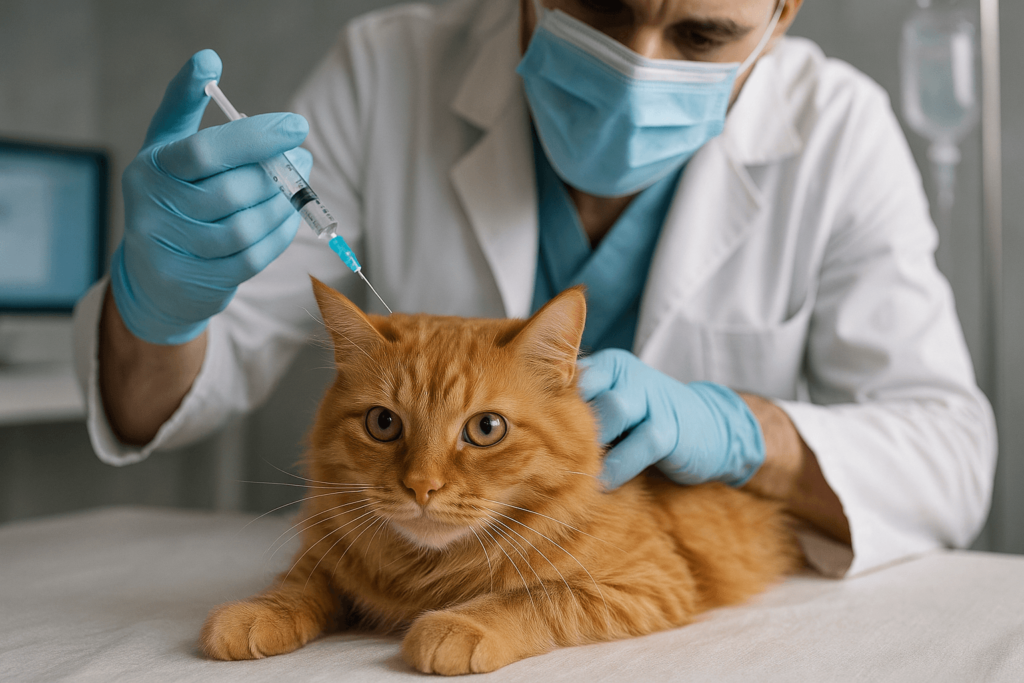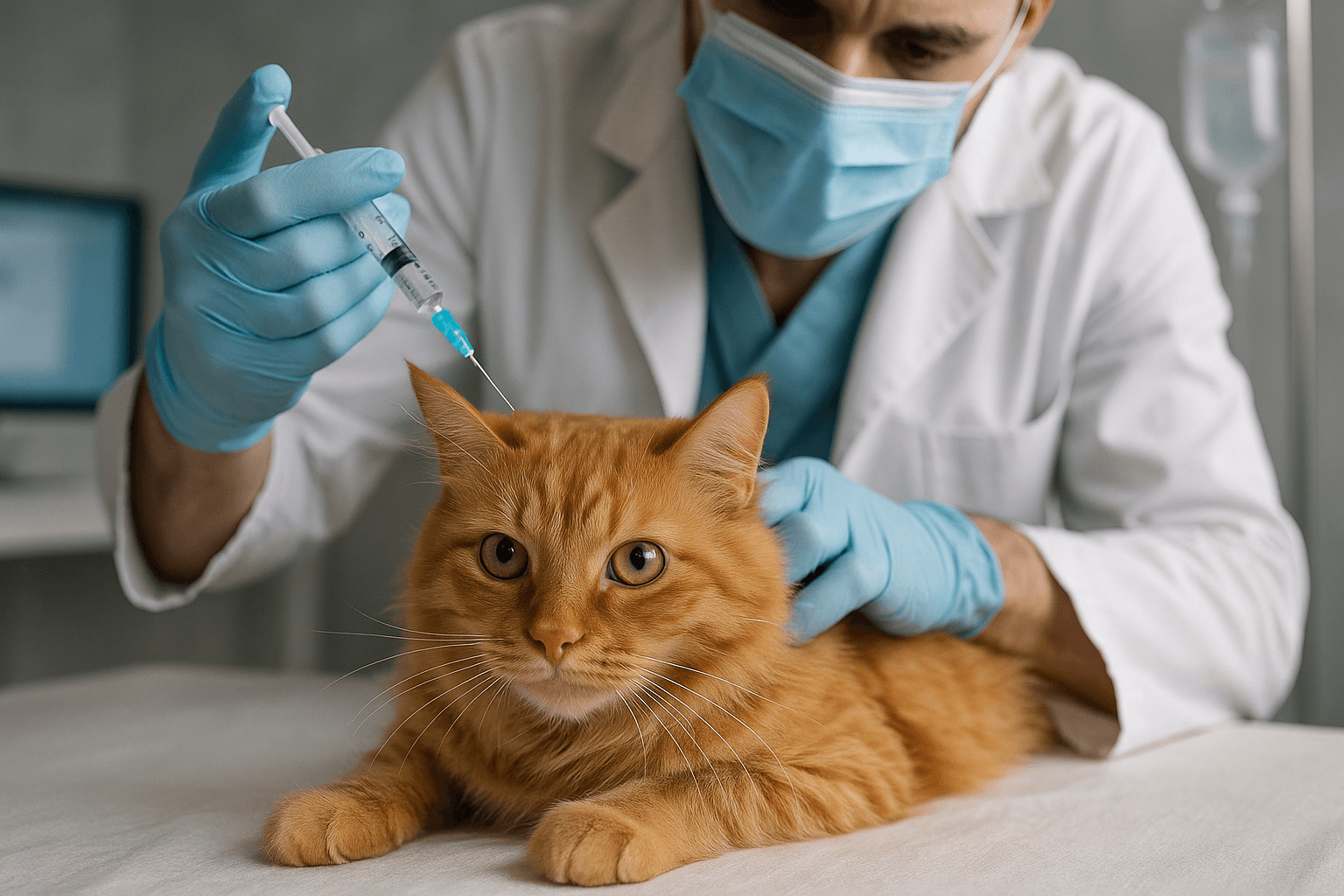Cat Coronavirus Treatment: What Every Cat Owner Should Know
Feline coronavirus (FCoV) is a viral infection that affects cats worldwide, often causing mild to severe gastrointestinal symptoms. While many cats recover without complications, some cases can progress to feline infectious peritonitis (FIP), a potentially fatal condition. Understanding the treatment options and management strategies for cat coronavirus is crucial for ensuring your feline friend’s well-being. In this blog post, we’ll explore the causes, symptoms, and treatment approaches for cat coronavirus, as well as how to support your pet through recovery. Whether you’re a seasoned cat owner or new to feline care, this guide will equip you with the knowledge needed to navigate this challenging health issue.
Understanding Feline Coronavirus: Causes and Transmission
Feline coronavirus is highly contagious and primarily spreads through contact with infected feces or contaminated environments. Knowing how the virus operates can help you take preventive measures and minimize risks for your cat.
Oral-Fecal Transmission:
The virus is shed in an infected cat’s feces, which can contaminate litter boxes, food bowls, and other surfaces.Overcrowded Environments:
Multi-cat households or shelters are common settings for outbreaks due to close contact and shared resources.Weakened Immune Systems:
Cats with compromised immune systems are more susceptible to severe forms of the virus, such as FIP.Age and Breed Factors:
Kittens and certain breeds, like Bengals and Abyssinians, may face higher risks of developing complications from FCoV.Asymptomatic Carriers:
Some cats carry the virus without showing symptoms, making it difficult to detect and control its spread.
Understanding these transmission pathways and risk factors is key to preventing and managing feline coronavirus effectively.

Symptoms of Feline Coronavirus: What to Watch For
Recognizing the signs of feline coronavirus early can make a significant difference in your cat’s prognosis. While many cases are mild, others may indicate a more serious condition requiring immediate attention.
Diarrhea and Vomiting:
Gastrointestinal upset is one of the most common symptoms of FCoV infection.Lethargy and Weakness:
Infected cats may appear unusually tired or reluctant to engage in normal activities.Loss of Appetite:
A sudden decrease in food intake can signal discomfort or illness caused by the virus.Weight Loss:
Chronic infections may lead to noticeable weight loss over time.Abdominal Swelling:
In severe cases, fluid accumulation in the abdomen may occur, indicating the development of FIP.
By staying vigilant for these symptoms, you can seek timely veterinary care and improve your cat’s chances of recovery.
Check this guide 👉Can Cats Get Norovirus from Humans? Best 7 Health Tips!
Check this guide 👉Can I Give My Cat Vaccines Myself? Best 7 Expert Tips!
Check this guide 👉Understanding the FVRCP Cat Vaccine: Best 7 Health Tips!
Preventive Measures for FCoV | Treatment Options for Infected Cats |
|---|---|
Regularly clean litter boxes | Supportive care, including fluids and nutrition |
Isolate sick cats from healthy ones | Anti-inflammatory medications for inflammation |
Avoid overcrowding in multi-cat homes | Antiviral drugs under veterinary supervision |
Practice good hygiene with food and water bowls | Monitor for secondary infections and treat promptly |
Test new cats before introducing them | Palliative care for advanced FIP cases |
Supportive Care for Cats with Coronavirus
While there is no specific cure for feline coronavirus, supportive care plays a vital role in helping infected cats recover. These measures focus on alleviating symptoms and boosting overall health.
Hydration Therapy:
Ensuring your cat stays hydrated is critical, especially if they experience vomiting or diarrhea. Subcutaneous fluids may be necessary in severe cases.Nutritional Support:
Offer easily digestible foods to encourage eating. Appetite stimulants may be prescribed if your cat refuses to eat.Medications for Symptom Relief:
Anti-nausea drugs and probiotics can help manage gastrointestinal symptoms and restore gut health.Monitoring Progress:
Keep track of your cat’s weight, energy levels, and behavior to identify any worsening signs quickly.Reducing Stress:
Create a calm environment to support your cat’s immune system and aid in recovery.
With consistent supportive care, many cats can overcome mild cases of coronavirus and return to their playful selves.
When to Seek Veterinary Help for Your Cat
Knowing when to consult a veterinarian is essential for addressing feline coronavirus promptly and effectively. Early intervention can prevent complications and improve outcomes.
Persistent Diarrhea or Vomiting:
If these symptoms last more than a day or two, it’s time to see a vet.Signs of Dehydration:
Sunken eyes, dry gums, or reduced skin elasticity indicate your cat needs immediate medical attention.Unexplained Weight Loss:
Significant weight loss over a short period warrants a thorough examination.Behavioral Changes:
Hiding, aggression, or unusual vocalizations may signal pain or distress caused by the virus.Suspected FIP Symptoms:
Abdominal swelling, jaundice, or difficulty breathing require urgent veterinary evaluation.
Timely professional care ensures your cat receives the best possible chance at recovery.
Preventing Outbreaks in Multi-Cat Homes
In households with multiple cats, preventing the spread of feline coronavirus requires careful planning and hygiene practices. Taking proactive steps minimizes the risk of infection among your feline family members.
Separate Litter Boxes:
Provide individual litter boxes for each cat to reduce cross-contamination.Regular Cleaning Protocols:
Disinfect litter boxes, food dishes, and bedding frequently to eliminate traces of the virus.Quarantine New Cats:
Isolate new additions for at least two weeks to monitor for signs of illness before introducing them to resident cats.Limit Close Contact:
Discourage behaviors like sharing food bowls or grooming each other to lower transmission risks.Test High-Risk Cats:
Cats showing symptoms or those in high-risk environments should be tested for FCoV regularly.
Implementing these measures creates a safer environment for all your cats.
Managing Stress During Recovery
Stress weakens a cat’s immune system, making it harder for them to fight off infections like feline coronavirus. Reducing stress during recovery promotes healing and improves overall well-being.
Create a Quiet Space:
Designate a peaceful area where your cat can rest undisturbed during their recovery.Stick to a Routine:
Maintain consistent feeding, play, and sleep schedules to provide stability and comfort.Use Calming Products:
Pheromone diffusers or calming sprays can help soothe anxious cats.Limit Handling:
Minimize unnecessary handling to allow your cat to rest and conserve energy.Engage in Gentle Play:
Encourage light, interactive play sessions to stimulate your cat mentally and physically.
Reducing stress supports your cat’s immune system and aids in faster recovery.
Advances in FIP Treatment Research
Recent advancements in feline infectious peritonitis (FIP) treatment offer renewed hope for cats suffering from this devastating condition. Staying informed about these developments helps you make educated decisions about your cat’s care.
Antiviral Drugs Like GS-441524:
This experimental drug has shown promising results in treating FIP, though it’s not yet widely approved.Improved Diagnostic Tools:
New tests allow veterinarians to diagnose FIP earlier and more accurately, improving treatment outcomes.Gene Therapy Studies:
Researchers are exploring gene therapy as a potential long-term solution for managing FIP.Clinical Trials:
Participating in clinical trials may provide access to cutting-edge treatments for eligible cats.Increased Awareness:
Advocacy groups and online communities are raising awareness and funding for FIP research.
These innovations highlight the importance of continued investment in feline health research.
Frequently Asked Questions About Cat Coronavirus Treatment
Can feline coronavirus be cured?
While there’s no definitive cure, most cats recover with supportive care. Severe cases like FIP have limited treatment options but ongoing research offers hope.
Is feline coronavirus contagious to humans?
No, feline coronavirus only affects cats and poses no risk to human health.
How long does it take for a cat to recover?
Recovery times vary, but mild cases typically resolve within a few weeks with proper care.
What is the difference between FCoV and FIP?
FCoV is a common, usually mild virus, while FIP is a rare, life-threatening mutation of FCoV.
Can I vaccinate my cat against feline coronavirus?
Currently, there is no widely available vaccine for FCoV or FIP, though research continues.
Empowering Cat Owners to Manage Feline Coronavirus
Feline coronavirus can be a daunting challenge for cat owners, but understanding its causes, symptoms, and treatment options empowers you to provide the best care for your beloved pet. By focusing on prevention, early detection, and supportive care, you can help your cat navigate this illness and thrive once again. Remember, your veterinarian is your greatest ally in managing feline coronavirus—don’t hesitate to reach out for guidance. With love, patience, and informed decision-making, you can give your furry companion the strength and support they need to overcome this hurdle.
Canned Pumpkin for Cat Diarrhea: Best 7 Expert Tips! Natural remedy to firm stools, soothe upset bellies, and support gut health safely.
Can a Cat Give You Scabies? Best 7 Expert Tips! Discover the truth about feline mites, human skin risks, and how to protect yourself—without panic.
Cat Flea vs Human Flea: Best 7 Expert Tips! Discover the truth about bites, species, and how to eliminate infestations for good.
Weird Cat Behaviors: Best 7 Expert Tips! Discover why cats do strange things—and how to understand, not punish, their instincts for a happier home.





